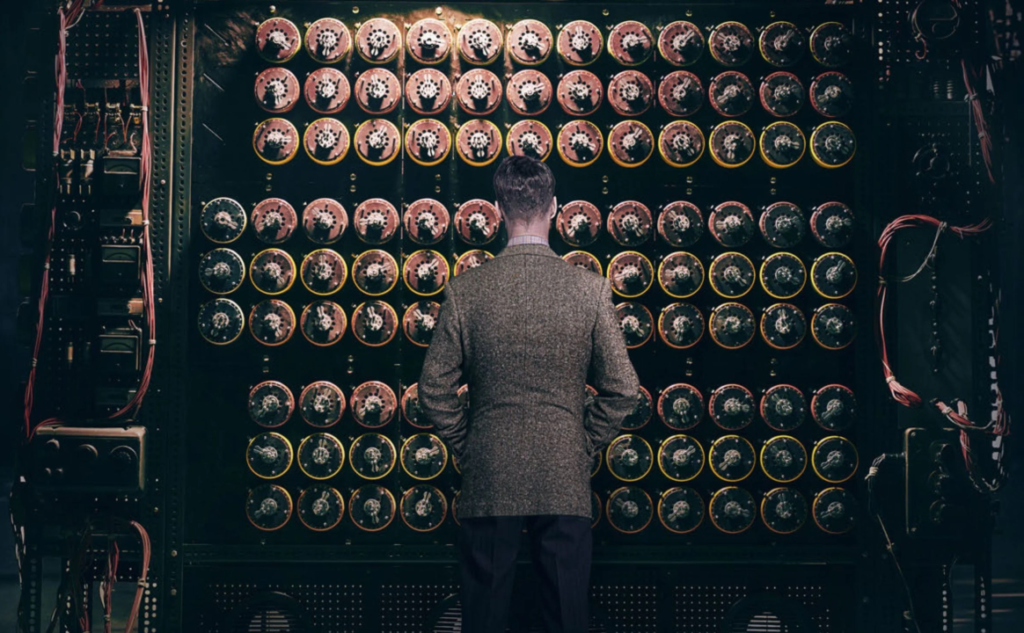The Imitation Game is a movie about a genius mathematician named Alan Turing, who took the leading role in helping to break the Enigma code during WW1. As part of his plan to break the code, he built the Turing machine, and later on succeeded.
Not only does the movie show the process that Alan Turing and his group used in breaking the enigma, but it also provides the audience with an opportunity to reflect on the evolution of the topic of LGBTQ. This was achieved by the portrayal of Turing’s struggles as a homosexual man in societal discrimination during the period, where it was considered a crime or illness.
The movie contained scenes of Alan Turing as a student, and how he was bullied for being ‘different’ from others.
Then came Christopher, his only friend who defended him throughout his constant beatings and harassment. Their relationship bonded from shared interests in mathematics and intellectual pursuits, evolved into love for each other, however soon ended, as Christopher died due to an illness called Tuberculosis which Alan had no idea about. The movie later shows how much Christopher meant to Alan, as he named his machine, which he built to help break the enigma code, Christopher. The audience was now able to understand Alan’s desperation in breaking the code by building ‘Christopher’, as to him, he looked at it as his emotional pillar, and his way of showing tribute to Christopher’s memory.
This movie manifests the evolution of LGBTQ rights, by showing the contrasts between the discrimination faced by Alan Turing during his lifetime and the progressive attitudes and legal changes that have occurred throughout the years since his death.
Once they cracked the enigma, Turing and the others faced a bigger problem: how and on where to use the intelligence? They were torn between using the intelligence to either retaliate or defend against the German forces or to keep the information to themselves and use it to salvage as many survivors as possible. The former was to risk the chance of the Germans noticing that the enigma was decoded; the latter meant some people would have to die for a larger portion of people to live. Turing was faced with an emotional conflict as he felt that they were playing “God” with innocent people’s lives. He expresses his complicated feelings by constantly repeating to himself, “ Sometimes we can’t do what feels good. We have to do what is logical.” This shows how conflicted the mathematicians were in how to use the information they cracked from the enigma.
In terms of how this relates to the theme of humanism, the ‘Imitation Game’ depicts the unfair reality of human lives. Humanism is “affirming the dignity of each human being, it supports the maximization of individual liberty”. Turing and the other characters eventually were forced to sacrifice one group of innocent people to save the greater group of people–– this makes the characters contemplate their position amongst humanity for they don’t feel qualified to be a judge for who gets to live and who doesn’t.
Inevitably, there was also a question of ethics. Turing has an even harder time deciding what to do with their intelligence because one of his companions, Peter Hilton, had a brother amongst the thousands of civilians they, unfortunately, had to sacrifice for the “greater good”, which made it very personal for himself and all of his companions. Naturally, there was a question of whether sacrifices were worth it for the “greater good”–– for which the characters never had an answer. Turing concluded that they were not God, and thus had no right to choose life and death for other people, but in the end, they had made the necessary decision to win the war; “Was I God? No. Because God didn’t win the war, we did.”
When Alan’s sexuality was revealed, he was given two choices, two years of prison, or two years of medical therapy. He chose the second option, to continue his work. However, the medication made it difficult for Alan Turing to focus on his work, so much so that he was unable to concentrate to solve even a simple crossword, something he had enjoyed and been skilled at before his medications. This scene in the movie, showed Alan Turing as one of the many people, who had to undergo this process, just for their sexuality, treating it as some kind of illness. The end of the movie shows that Alan Turing committed suicide in 1954 a year after his therapy.
In 2013, Alan Turing received a royal pardon from Queen Elizabeth the Second, receiving immense recognition for his work and accomplishments. This was one of the beginning steps to acknowledging the wrongs committed against the LGBTQ communities in the past.

